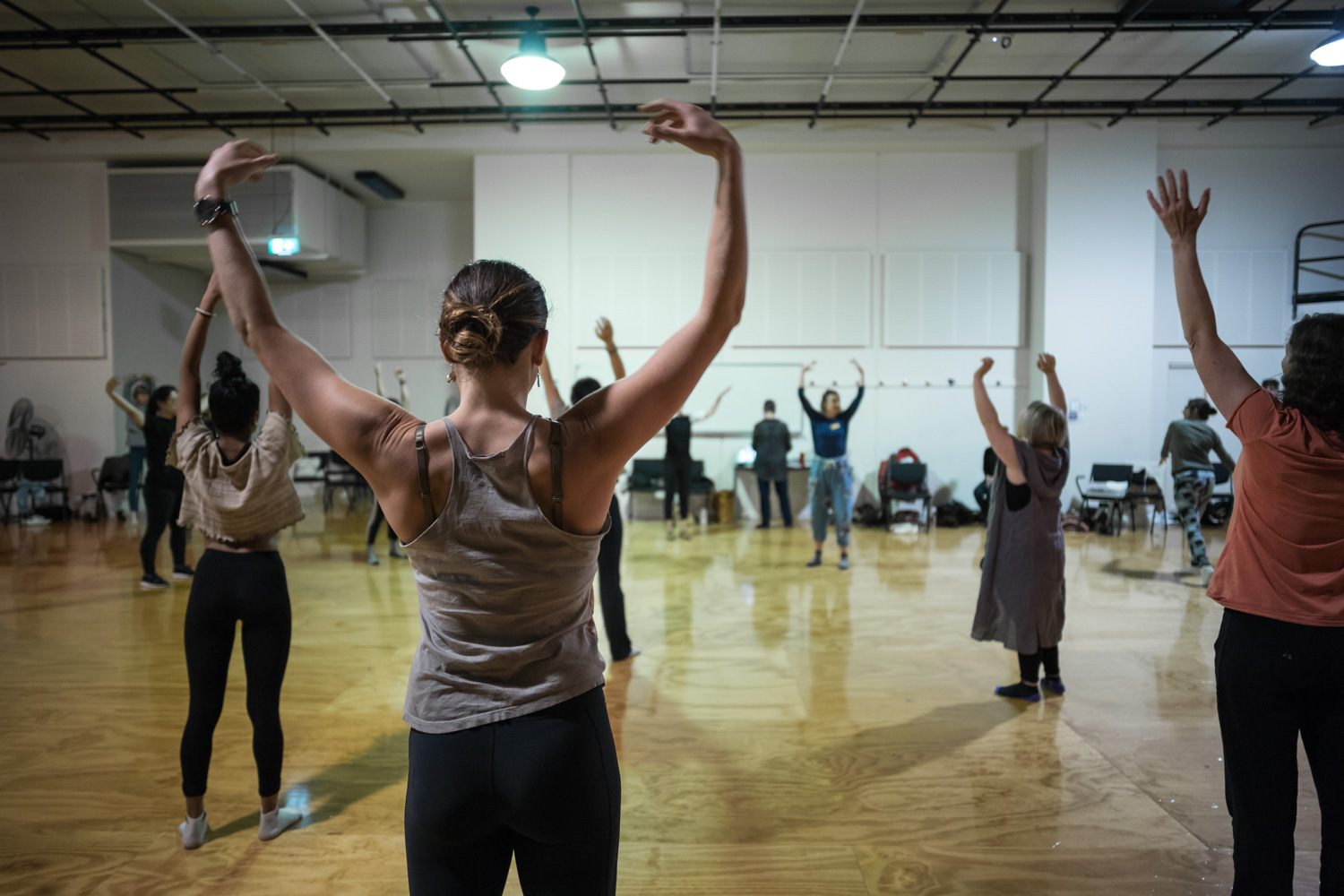Master of Creative Arts Therapy: an Australian first at the University of Melbourne

A new Master of Creative Arts Therapy course has been announced by the Faculty of Fine Arts and Music at the University of Melbourne.
The two-year full-time course, to be taught at the University’s Southbank campus and the first course of its kind in Australia, offers students a specialisation in either drama or dance movement therapy.
It has been developed specifically for artists, arts educators, community arts workers, health workers, therapists and others who are interested in training to practice as a drama or dance therapist, and provides students with studies in theory, methods, research and professional practice across health, educational and community contexts.
Professor Katrina McFerran, an international expert on the topic of music, music therapy and adolescents, and Director of Graduate Training in the University’s Creative Arts and Music Therapy Research Unit (CAMTRU) said the course would build on the global standing and strong research profile of Music Therapy at the University.
“This course is a first in this country and it will mean that all of the different creative arts modalities are operating at the same level, providing professionals who are trained at masters level to go out and make a difference in the world,” she said.
“Creative arts therapy offers a fantastic foundation for coming in as an artist and developing your capacity as a therapist who cares for, helps, works with, supports, nurtures other people in hospitals, in schools, in the community, in mental health care. Providing people with the knowledge they need to do that well gives them the support and structures to actually make a difference in people’s lives.”
The teaching method, said Professor McFerran, will incorporate experiential, theoretical and practice-based learning approaches. As part of the course, students will also undertake supervised industry placements in various contexts, including community health and education. A Blended Learning approach will see approximately half the course delivered via online teaching and half via intensive, face-to-face delivery in one-week blocks, twice a semester.
Ella Dumaresq, a PhD candidate at CAMTRU and a practicing dance movement therapist, said the time was right for a course of this kind in Australia. “The field of creative arts therapies is growing internationally and it’s incredible that we’re keeping apace with that and that students don’t have to travel overseas in order to do dance movement or drama therapy.
“We use integrative approaches, looking not only at mental health but also bodily health as well so we combine a body and mind perspective to support people more holistically in their health journeys. Dance movement therapy tends to attract people who may have studied dance, may have danced professionally, as well as other health professionals – individuals who are interested in working with people in some sort of a supporting capacity.”
Drama therapist and fellow PhD candidate at CAMTRU Amanda Musicka-Williams has developed a career in special education in Australia after studying at the Central School of Speech and Drama in London. “I had to go to London to train because we didn’t offer any sort of creative arts therapies at a masters level in Australia,” she said. “Having a course like this here is amazing because it will broaden the way in which we are willing to work with people in this context. Drama therapy offers an indirect approach, so you can look at life material, which might be too painful to look at in a direct way, through the use of character or metaphor or story.”
Music Therapy has been taught at the University of Melbourne for more than 40 years, and boasts a significant research profile through a number of world-leading trials.
“We’ve been really lucky to find a home which emphasises research as well as practice,” said Professor McFerran. “Music Therapy has been very successful in undertaking a number of large research projects in fields such as dementia, adolescent mental health, rehabilitation, and working with people who have disabilities.
“We’re expecting this new program will also build a capacity for research in the fields of drama therapy, dance therapy and all the creative arts therapies. We have an exciting PhD program, which is already underway and a number of great researchers beginning their careers already. They’re making a difference so that the research supports the creation of positions and jobs for people to work as creative arts therapists.”
Applications for the Master of Creative Arts Therapy – 2020 start of year intake – are open now and close on 31 October 2019. More information.